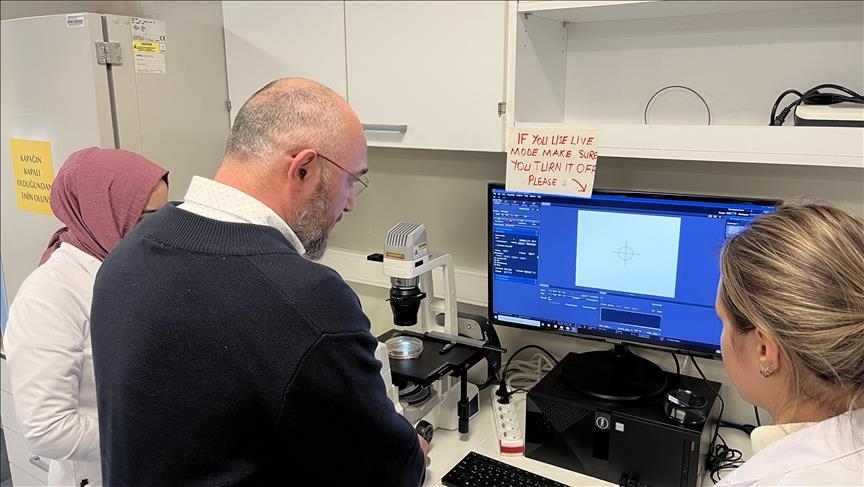A Turkish researcher born in Austria investigates the effects of dysfunction in the cerebral vascular system on Alzheimer’s and Parkinson’s-like diseases with his project in Türkiye on the human cerebral circulation system.
Dr. Emrah Eroglu came to Türkiye as part of the 2232 International Leading Researchers Program of the country’s Scientific and Technological Research Council (TUBITAK) while he was doing research at Harvard University in the US.
Eroglu was born in a small village in Austria and started working as a carpenter at an early age due to financial difficulties. He graduated from high school at the age of 27.
He continued his education at the Department of Molecular Biology of the University of Vienna and the Technical Chemistry graduate program of the Vienna Technical University.

Eroglu studied at Harvard University for two years and Austria’s Medical University of Graz for a year as a postdoctoral researcher under the research support he received after completing his doctoral education.
But, he came to Türkiye in 2019 after his research at Harvard, applying for TUBITAK’s research program.
While continuing his scientific studies at Istanbul Medipol University’s Health Science and Technologies Research Institute, he was supported by the European Molecular Biology Organization (EMBO) for his project — Investigation of brain endothelial dysfunction mechanisms by chemogenetic methods.
Eroglu told Anadolu that the technical facilities in Türkiye are suitable for conducting world-class research.
He stressed that he is one of the 11 scientists who were awarded the 2023 EMBO Settlement Support Award.
“Especially when we get older, oxidative stress levels increase in our body. This generally causes skin aging, aging of different organs, and deterioration of their functionality,” he said.
They investigate the direct effect of oxidative stress on the brain vascular system, and the effects of dysfunction in the brain vascular system on diseases such as Alzheimer’s and Parkinson’s.
“I started at such a pace that I finished the doctoral program — which normally takes three to four years, sometimes five years — in one and a half years. Because I had already completed all the expectations during the first semester. I completed all the courses in the curriculum quickly,” he said.
Later, he was accepted for another project as a researcher and continued his research at Harvard University.
After completing successful studies in the US, he thought of the idea of going to Türkiye, and he was aware of the TUBITAK project at the time.
Noting that he did not consider himself sufficient to be accepted for the project, he said he was very happy when he heard he was accepted as he spent great effort on it.
Stressing that there are all kinds of scientific opportunities in Türkiye, he said the country has access to everything in terms of technology.
We showed that we can do this kind of research in Türkiye for those who hesitate or have anxiety, he added.
Comparing the scientific opportunities in the world, he said: “The opportunities there (rest of the world) are not much more than ours. In fact, we have more advantages here in some areas (in Türkiye). Our students are very bright, very intelligent, hard-working. You may not find them abroad much. If you want to do science, without them, it’s not easy to do without human resources.”




















































Be First to Comment